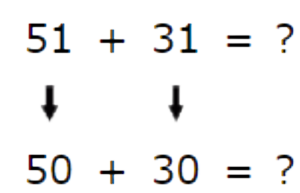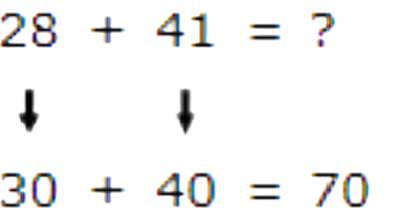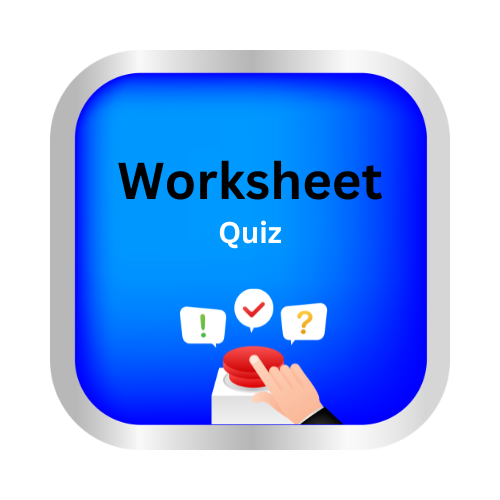Estimate sums
key notes:
Understanding Estimation
- Estimation means finding a number close to the exact sum.
- It helps in quick calculations and checking answers.
Rounding Numbers
- Round numbers to the nearest 10 to make adding easier.
- Example: 47 rounds to 50, 32 rounds to 30.
Using Benchmark Numbers
- Identify numbers close to 10, 20, 50, or 100 to estimate sums quickly.
Mental Math Strategies
- Use friendly numbers (like 10, 20, 50) to estimate sums.
- Example: Estimate 48 + 23 → round to 50 + 20 = 70.
Estimating with Two-Digit Numbers
Look at the tens place to decide how to round.
Example: 56 + 38
- Round to 60 + 40 = 100 (estimated sum).
Checking Reasonableness
- Compare estimated sum with actual sum to see if it makes sense.
Importance of Estimation
- Helps in real-life situations like shopping, time management, and planning.
Learn with an example
✈️ Estimate the sum by rounding each number to the nearest ten and then adding. 51 + 31
The sum is approximately ___________.
- Round each number to the nearest ten.

- Now add: 50 + 30 = 80
- The sum is about 80.
✈️ Which addition problem has a sum of about 70?
- 11 + 41
- 28 + 41
- 11 + 13
- 62 + 19
- Estimate each sum by rounding each number to the nearest ten, then adding.
- This problem has a sum of about 50.

- This problem has a sum of about 70.

- This problem has a sum of about 20.

- This problem has a sum of about 80.

✈️ Estimate the sum by rounding each number to the nearest ten and then adding.
43 + 37
The sum is approximately ________.
- Round each number to the nearest ten.

- Now add: 40 + 40 = 80
- The sum is about 80.
Let’s practice!🖊️

